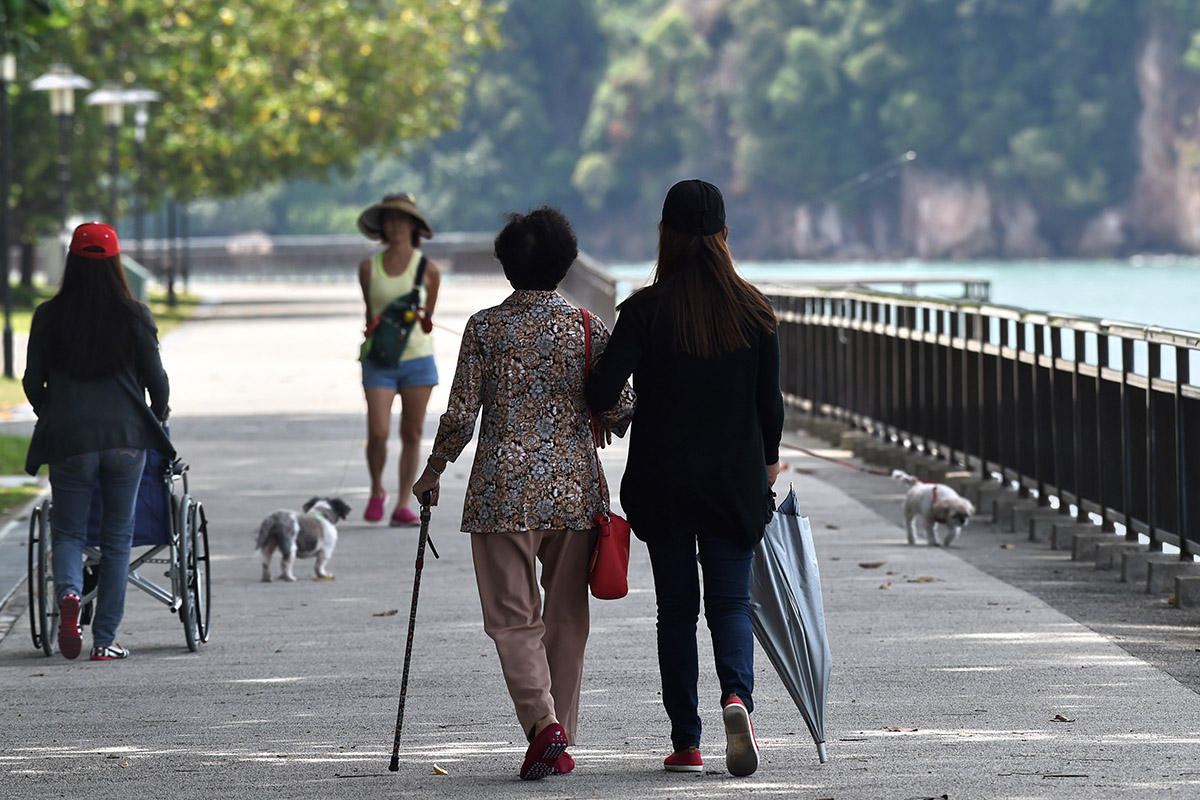Singapore is embracing technology and focusing more on personal health, as an expected doubling of seniors over the next two decades forces the nation to confront politically sensitive decisions on financing and immigration.
While Singapore’s aging population is something to celebrate in reflecting longevity, it’s also forcing the city state to become more nimble in how it approaches the challenges, Chee Hong Tat, senior minister of state for health and communications and information, said in an interview Tuesday.
“You need to help people to live healthier, more active lives and reduce the demand for healthcare, but recognise that aging is unavoidable,” said Chee, who noted that the number of patients with chronic diseases such as high blood pressure, diabetes and cancer is set to rise in Singapore. “In healthcare, it’s a double-whammy for us because your demand is going up but your supply of healthcare workers is actually potentially going down because the pool is reducing.”
Technological and business innovations will help, shaping healthcare both for workers and patients, said Chee, who is encouraging companies to research healthier food products and other solutions for Singapore and the region.
Singapore will also rely on efforts such as tele-health, for example where rehabilitation patients can conduct exercises at home under the supervision of a remote physician, he said. Technology will allow nurses to monitor the vital signs of a whole ward of patients from one desk, and allow prescriptions to be filled under automation rather than manually.
Aging Population
“Big data” is also making it possible to predict, for instance, whether someone is at high risk for a walking aid given factors such as gait and posture, and the chances of a patient needing hospital care again after being discharged, he said.
Economies across Asia are grappling with how to serve growing elderly populations without imperiling economic growth or burdening working-age residents. Singapore’s eldest residents are set to crowd out the youngest cohort next year.
Chee emphasised an across-the-board approach and said that Singapore was uniquely positioned to mitigate the negative effects of aging because of its relative willingness to address long-term problems now.
“The politics in many countries make it virtually impossible for them to be able to think longer-term, to be able to put in place certain more unpopular measures that are necessary but will cost you votes in the short term,” Chee said.
Singapore’s government remains reluctant to tap into its plentiful reserves to alleviate its growing healthcare burdens, out of respect for the investments made by previous generations, he said.
“When you plant trees, the next generation will benefit from the shade,” said Chee, citing a Chinese proverb. He emphasised that reserves already are being used for healthcare expenditures, in that half of the net investment income each year goes toward government expenses.
Singapore will also have to ensure that the supply of workers in the healthcare industry remains robust. The government’s healthcare manpower plans through 2020 call for 30,000 additional industry workers.
“It will not be possible to fill all 30,000 jobs with only Singaporeans,” Chee said. “We can’t deal with our demographic challenges by closing our doors to international talent, to immigrants. It’s just not tenable.”
At the same time, older Singaporean employees who wish to work longer should be a particular focus of training, and pushing family-friendly policies should counter a languishing birth rate, Chee said. The government will also focus on how to train Singaporeans for a dynamic healthcare industry that’s adapting to data analytics and automation, he said. – Bloomberg
Recommended stories:
